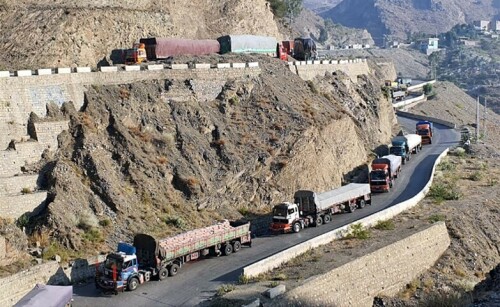PESHAWAR: The Peshawar High Court on Tuesday directed brick kiln owners to ensure early conversion of their conventional kilns to the environment-friendly zig-zag technology to help reduce air pollution.
A bench consisting of Chief Justice Qaiser Rashid Khan and Justice Shakeel Ahmad observed that it couldn’t allow environmental pollution by brick kilns on the excuse that their owners didn’t have money to make the switch.
It also recalled a stay order issued by it earlier stopping the provincial Environmental Protection Agency (EPA) from taking any adverse action against brick kilns.
The court was hearing a petition filed by the KP Brick Kilns Association challenging the Environmental Protection Agency’s actions against brick kilns as well as the rules making it binding on kiln owners to employ the zig-zag technology, which is considered environment-friendly compared to the existing technology.
Recalls stay order against EPA clampdown
The petitioner’s counsel said each brick kiln required at least Rs6-Rs7 million for the switch, which the owners couldn’t afford.
He said the KP Environmental Protection Act was passed in 2014, while the relevant rules made it mandatory for brick kiln owners to use zig-zag technology to cut pollution.
The lawyer said the government had insisted that the kilns’ conversion to the new technology would help reduce environmental pollution and the bricks made that way would be of high quality.
EPA deputy director Mumtaz Ali said the modern zig-zag technology was need of the hour.
He added that the technology would drastically reduce carbon emissions from brick kilns and would help improve the environment.
The official said the zig-zag technology was first introduced in Nepal and was successfully working there.
He said the use of modern technology would also reduce the cost of producing bricks, which would be in favour of the petitioner.
Mr Ali said the conventional brick kilns emitted black thick smoke causing air pollution, climate change and serious health problems, while the new zig-zag technology led to better and more efficient fuel combustion.
Additional advocate general Malik Akhtar and a technical expert of the EPA disputed the petitioner’s claim that the installation of the new technology would require over Rs6 million cost, and insisted the kiln owners would require Rs1.5-Rs2 million at maximum for the purpose.
They pointed out that the court had earlier issued a stay order in favour of the petitioner as the latter claimed that kiln owners couldn’t afford conversation to the new technology.
The two requested the court to recall the stay order.
The bench observed that merely on the excuse of a lack of resources, it would not allow the brick owners to contribute to environmental degradation through the continued use of outdated technology.
It added that the petitioner and the Environmental Protection Agency should sit together so as to ensure the utilization of the new technology.
The bench observed that it didn’t want any business to be hit by its orders but at the same time, environmental degradation was a matter of prime concern for it.
Published in Dawn, May 25th, 2022













































Dear visitor, the comments section is undergoing an overhaul and will return soon.